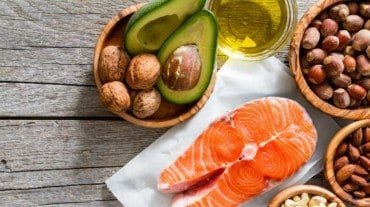Welcome to the world of healing fats, where the key to unlocking optimal well-being lies in the power of healthy fats. In this article, we will explore the benefits of healing fats, how they can improve your health, and answer some frequently asked questions about these essential nutrients. So, let’s dive in and discover the wonders of healing fats!
The Role of Healing Fats in Your Health
Healing fats, also known as healthy fats or essential fatty acids, play a crucial role in maintaining overall health and well-being. These fats are not only a source of energy but also serve as building blocks for cell membranes, hormones, and various other important molecules in your body.
Consuming healing fats is essential for several reasons:
- They provide a concentrated source of energy, helping you feel satiated and satisfied after a meal.
- They support brain health and cognitive function, as a significant portion of your brain is made up of fat.
- They aid in the absorption of fat-soluble vitamins, such as vitamins A, D, E, and K.
- They promote healthy skin, hair, and nails, keeping them nourished and vibrant.
- They help reduce inflammation in the body, which is a common underlying factor in many chronic diseases.
The Different Types of Healing Fats
Not all fats are created equal. Some fats are beneficial for your health, while others can be harmful when consumed in excess. Let’s take a closer look at the different types of healing fats:
1. Monounsaturated Fats
Monounsaturated fats are considered one of the healthiest types of fats. They are found in foods such as avocados, olive oil, nuts, and seeds. These fats have been associated with numerous health benefits, including:
- Reduced risk of heart disease
- Improved insulin sensitivity
- Lowered cholesterol levels
- Anti-inflammatory properties
2. Polyunsaturated Fats
Polyunsaturated fats are another type of healing fat that your body needs for optimal health. They are found in fatty fish, flaxseeds, walnuts, and soybean oil. Polyunsaturated fats are rich in omega-3 and omega-6 fatty acids, which are essential for:
- Brain development and function
- Reducing inflammation
- Lowering the risk of heart disease
- Supporting healthy skin
3. Saturated Fats
Saturated fats have long been demonized, but recent research suggests that they may not be as harmful as once believed. While it’s still important to consume them in moderation, some sources of saturated fats, such as coconut oil and grass-fed butter, offer potential health benefits:
- Increased levels of HDL (good) cholesterol
- Improved brain function
- Enhanced immune system
- Support for hormone production
4. Trans Fats
Unlike healing fats, trans fats are artificial fats that are created through a process called hydrogenation. These fats are found in many processed and fried foods and have been linked to an increased risk of heart disease, inflammation, and other health issues. It’s best to avoid trans fats altogether for optimal health.
FAQs on Healing Fats
Q: How much healing fats should I consume daily?
A: The amount of healing fats you should consume daily depends on your individual needs and goals. However, a general guideline is to aim for about 20-35% of your total daily calorie intake to come from healthy fats.
Q: Can healing fats help with weight loss?
A: Yes, healing fats can actually aid in weight loss. Including healthy fats in your diet can help you feel fuller for longer, reducing the likelihood of overeating. Additionally, these fats support metabolic function and can help optimize your body’s fat-burning capabilities.
Q: Are there any vegetarian sources of healing fats?
A: Absolutely! If you follow a vegetarian or plant-based diet, you can still obtain healing fats from sources such as avocados, nuts, seeds, and plant-based oils like olive oil and coconut oil.
Q: Can healing fats benefit heart health?
A: Yes, healing fats can benefit heart health when consumed in moderation and as part of a balanced diet. Monounsaturated and polyunsaturated fats have been shown to reduce LDL (bad) cholesterol levels and lower the risk of heart disease.
Q: Can healing fats be used for cooking?
A: Yes, many healing fats are suitable for cooking. However, it’s important to choose the right fat for each cooking method. For high-heat cooking, oils with a high smoke point, such as avocado oil or ghee, are recommended. For low-heat cooking or drizzling over dishes, extra virgin olive oil or flaxseed oil are excellent choices.
Conclusion
Healing fats are not only delicious but also essential for your overall well-being. By incorporating healthy fats into your diet, you can support brain health, reduce inflammation, improve heart health, and promote healthy skin and hair. Remember to choose the right types of fats, such as monounsaturated and polyunsaturated fats, and consume them in moderation. So, go ahead and embrace the power of healing fats for a healthier and happier you!
Fun Fact: Did you know that avocados are one of the richest sources of monounsaturated fats? They are also packed with fiber, vitamins, and minerals, making them a true superfood for your body!
Originally posted 2023-07-16 15:23:09.


